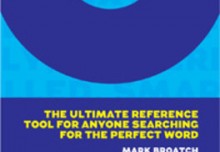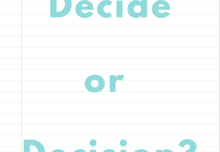Most writers have a fear of repeating words – and so they’ll strive, in often ludicrous ways, to come up with synonyms and alternate descriptions.
For example, they might write: “Dan’s cat was evil. The feline took pleasure in waking its owner in the dead of night. Sometimes, the furry creature would even bite its master’s ear to wake him up.”
Henry Fowler dismissingly named this technique “elegant variation” in his Dictionary of Modern English Usage, before adding that it often has “the air of cheap ornament”.
Although there are times when varying a word is called for, good editors usually avoid elegant variation for a number of reasons, including:
Readers often don’t notice the repetition
Inexperienced writers often feel bad about repeating said or says when quoting people – but readers don’t notice it. What they do notice are variations on the same word, such as wonders, exclaims or, worst of all, believes. You should never state that a person believes something – after all, you are not a mind reader. All you know is what people say, not what goes on in their mind.
As Fowler points out, drawing attention to your word choice is even worse than monotony.
Repetitions can indicate a problem with your structure
If you keep having to refer to something, then synonyms and other variations are often a Band-Aid fix when the real problem is you’re repeating whatever point or idea you’re trying to get across.
I see this all the time on organisation’s websites. They’ll have a sentence that says one thing – and then they’ll rephrase it in the following sentences, not just once but multiple times.
Instead of using elegant variation to mask the problem, it’s much better to think about what exactly you need to say (including what details the reader needs) – and then say it once, not three times.
It can become ludicrous
There’s a good Guardian article that shows how ridiculous elegant variation can become, such as when someone refers to a carrot as a popular orange vegetable and Leonardo da Vinci as the great Tuscan genius.
Admittedly, repeating someone’s surname can become tedious – but using pronouns instead will usually do the job.
The reason why we use pronouns in speech is because they sound natural – and that’s why we should use them in writing as well. Saying he, she or they is shorter and does the job better than something such as “the consultant” – and yes, you can repeat them.
The exceptions to the rule
Fowler himself said there are two reasons why you can use variation:
- Variation should take place only when there is some awkwardness, such as ambiguity or noticeable monotony, in the word avoided.
- The substitute should be of a purely pronominal character, a substitute and nothing more; there should be no killing of two birds with one stone.
In other words, if common sense dictates it, yes: vary a word. But if you’re referring to a banana as an elongated yellow fruit, don’t be surprised if people find your variation to be less than elegant.
Become a better writer by taking the Writing Essentials online course
This fun, practical and easy to follow self-paced course will teach you how to:
- write in the active voice
- use positive language
- cut copy
- make your intros stronger
- write in plain English
- use the right tone of voice and style
- write in the inverted pyramid style
- know what makes a story interesting
- frontload content
- spot common grammar and punctuation mistakes
- proofread your own work
- write great headlines.
To keep things lively – and make sure you’ve absorbed what you’ve just learnt – there are also plenty of exercises throughout the course.
Equivalent to a full-day workshop, there are six sessions that each take between 45 minutes to an hour and a half.
Find out more and enrol



